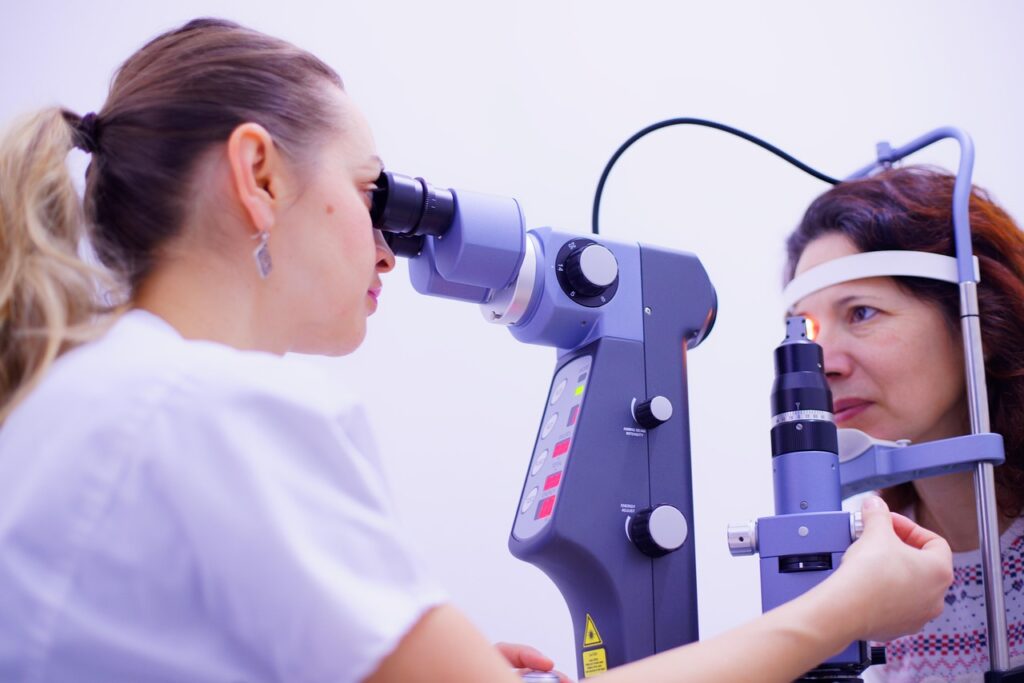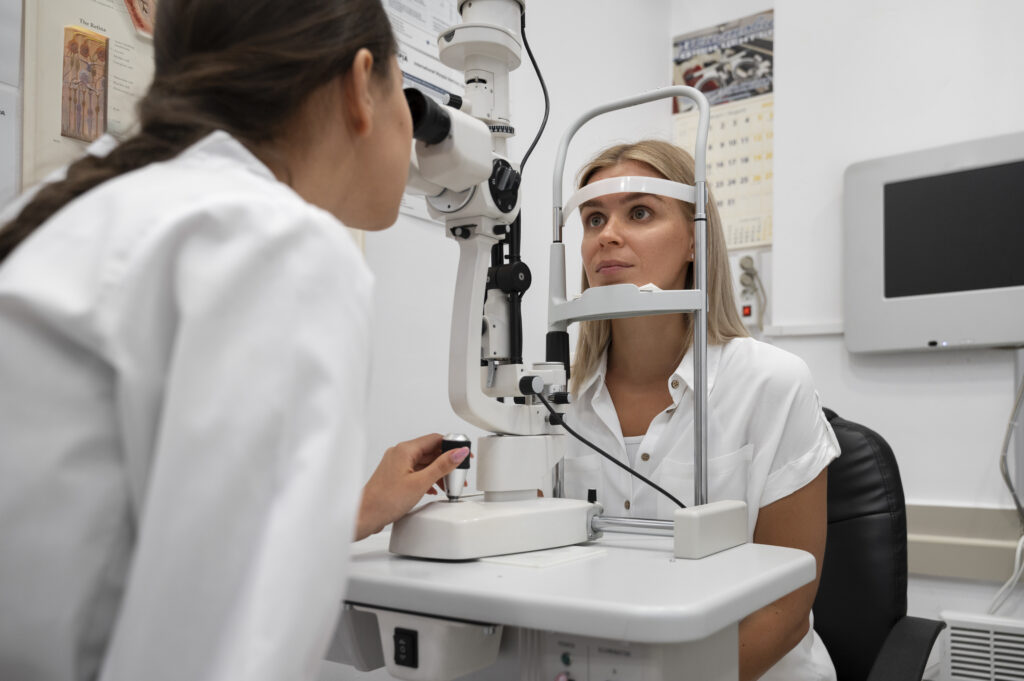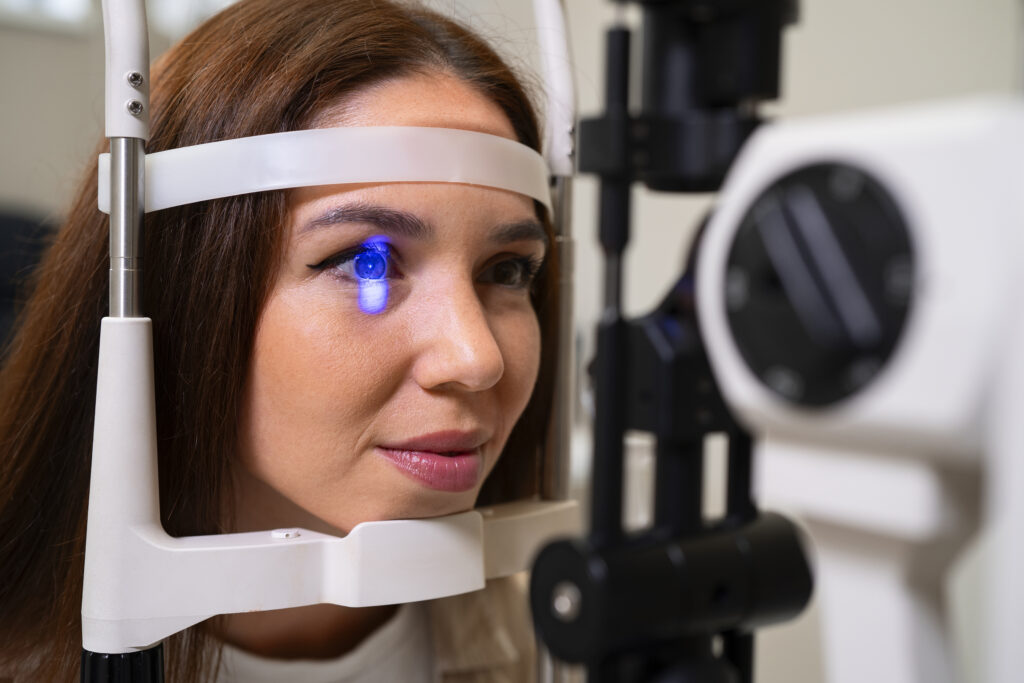LASIK in Turkey: The Ultimate 2025 Guide for Flawless Vision
LASIK in Turkey has become the gold standard for individuals worldwide seeking freedom from glasses and contact lenses. The dream of waking up to crystal-clear vision is now a safe, accessible, and highly successful reality, thanks to the world-class ophthalmology centers in Turkey. At Medicaltour.io, we are your trusted navigators on this life-changing journey, connecting you with elite surgeons and state-of-the-art clinics. This ultimate guide for 2025 provides everything you need to know about achieving flawless vision through laser eye surgery in Turkey.
Why is Turkey the Premier Destination for Eye Care?
Turkey’s global leadership in ophthalmology is built on three core pillars: cutting-edge technology, unparalleled surgical expertise, and exceptional value. Patients receive a level of care that is second to none, making the journey a worthwhile investment in their quality of life.
Firstly, Turkish eye hospitals are equipped with the most advanced laser technologies available, such as the latest femtosecond and excimer lasers. They offer sophisticated procedures like bladeless, Wavefront-guided LASIK, which creates a highly personalized map of the eye for incredibly precise results. The commitment to technology ensures maximum safety and optimal outcomes. The quality is further guaranteed by international accreditations, such as from the Joint Commission International (JCI), which holds these clinics to the highest global standards.
Secondly, Turkish ophthalmologists are among the most experienced in the world. They have performed tens of thousands of successful procedures, often specializing in complex cases. Many are members of prestigious international bodies like the American Academy of Ophthalmology (AAO) and are deeply involved in pioneering research. This depth of experience is crucial for ensuring a safe and effective procedure tailored to your unique eyes.

Advanced Laser Eye Surgery and Eye Care Procedures
Turkish clinics provide a full spectrum of ophthalmological treatments, from vision correction to complex surgical interventions. Here are some of the most sought-after procedures:
Bladeless LASIK (Femto-LASIK)
This is the most popular and advanced form of laser vision correction. In this two-step procedure, a femtosecond laser—a highly precise, cool-beam laser—is used to create a thin flap in the cornea. An excimer laser then reshapes the underlying corneal tissue to correct refractive errors like nearsightedness, farsightedness, and astigmatism. It is known for its rapid recovery and “wow” effect.
PRK (Photorefractive Keratectomy)
PRK is an excellent alternative for patients who may not be ideal candidates for LASIK due to thin corneas or certain lifestyle factors (e.g., contact sports). In PRK, the cornea’s outer layer is gently removed, and an excimer laser is used to reshape the cornea. The recovery is slightly longer than LASIK, but the long-term results are equally outstanding.
Cataract Surgery
A cataract is the clouding of the eye’s natural lens. Cataract surgery is a highly successful procedure where the cloudy lens is removed and replaced with a clear, artificial intraocular lens (IOL). Turkish surgeons are experts in using premium, multifocal IOLs that can correct vision at all distances, often eliminating the need for glasses after surgery.

Your Journey to Clear Vision with Medicaltour.io
We’ve designed a seamless, stress-free process so you can focus on your exciting visual transformation. Your journey to receiving a LASIK in Turkey is handled with care every step of the way:
- Free Online Vision Assessment: It all begins with a no-obligation consultation. You’ll connect with one of our partner clinics, share your current prescription and any relevant medical history, and receive a preliminary assessment from an expert ophthalmologist on your suitability for the procedure.
- Customized All-Inclusive Package: Once you’re confirmed as a candidate, we help create your personalized treatment package. This includes scheduling your surgery, booking your 5-star hotel, and arranging all your private VIP transfers for a comfortable, worry-free trip.
- Welcome to Turkey: Upon your arrival, our representative will greet you at the airport and escort you to your hotel. You’ll have time to relax before your detailed pre-operative examination.
- Comprehensive Eye Exam & Procedure: At the clinic, you will undergo a series of in-depth eye tests to create a precise map of your eyes. You will then meet your surgeon to discuss the plan before your quick, painless laser eye surgery, which often takes less than 15 minutes for both eyes.
- Post-Operative Check-up: The day after your procedure, you will have a follow-up appointment with your surgeon to check your vision and ensure everything is healing perfectly. You will be given your eye drops and clear instructions for aftercare.
- Return Home with a New Perspective: With your new, sharp vision, you’ll be driven back to the airport for your flight home. Our support continues, ensuring you can connect with the clinic for any questions during your recovery. You can find many of these Ministry of Health authorized healthcare providers on our platform.
Cost and Quality Comparison: A Clear Advantage
The financial benefit of choosing Turkey for laser eye surgery is undeniable, and it comes with an uncompromising commitment to quality. In the USA, the cost for bladeless LASIK on both eyes can range from $4,500 to $7,000. In the UK, it can be between £3,500 and £6,000. In stark contrast, the average cost for the exact same procedure, using the same advanced technology in Turkey, typically ranges from €1,200 to €2,500. This saving of up to 75% is due to the country’s economic structure and lower operational costs, allowing clinics to provide world-class care at a fraction of the price. You can learn more about Turkey’s healthcare system on portals like HealthTürkiye.
Compare Ophthalmology & Eye Care prices in Turkey by clicking here!

Frequently Asked Questions (FAQ)
How long do I need to stay in Turkey for LASIK?
The entire process is remarkably efficient. A stay of just 3 to 4 days is typically all that is required. This includes your pre-operative examination, the procedure itself, and your post-operative check-up the following day.
Is laser eye surgery painful?
The procedure itself is painless. Your eyes are completely numbed with anesthetic eye drops. You may feel a slight pressure sensation, but there is no pain. Some mild discomfort, like grittiness or light sensitivity, is common for a few hours after the procedure, but this subsides quickly.
How fast is the recovery after LASIK?
Recovery is incredibly fast. Most patients notice a dramatic improvement in their vision within the first few hours and are able to see clearly by the next morning. You can typically return to most normal activities, including work, within 24-48 hours.
Am I a good candidate for LASIK?
Ideal candidates are typically over 18, have had a stable glasses prescription for at least one year, and have good overall eye health. A comprehensive eye exam is necessary to confirm your candidacy. Conditions like thin corneas, severe dry eye, or certain autoimmune diseases may make other procedures like PRK a better option. Start by contacting one of the providers on our platform.
Glossary of Eye Care Terms
LASIK: Stands for Laser-Assisted In Situ Keratomileusis. A type of refractive surgery for correcting myopia, hyperopia, and astigmatism. Cornea: The transparent front part of the eye that covers the iris, pupil, and anterior chamber. It is the part of the eye that is reshaped during LASIK. Femtosecond Laser: An ultrafast laser that creates tiny, precise pockets of gas bubbles within the cornea, used to create the corneal flap in bladeless LASIK. Excimer Laser: An ultraviolet laser used in refractive surgery to remove microscopic amounts of tissue from the cornea, precisely reshaping it to correct vision. Intraocular Lens (IOL): An artificial lens that is implanted in the eye, most commonly during cataract surgery to replace the eye’s natural, clouded lens.
Glossary
| Term | Short Explanation |
|---|---|
| Cataract Surgery | Removal of a cloudy lens and replacement with an artificial intraocular lens. |
| LASIK (Laser-Assisted In Situ Keratomileusis) | Laser surgery to reshape the cornea and correct vision problems. |
| PRK (Photorefractive Keratectomy) | Laser reshaping of the cornea without creating a flap. |
| LASEK (Laser Epithelial Keratomileusis) | Combination of LASIK and PRK techniques for vision correction. |
| SMILE (Small Incision Lenticule Extraction) | Minimally invasive laser procedure to correct myopia. |
| Glaucoma Surgery | Procedures to reduce intraocular pressure and prevent optic nerve damage. |
| Trabeculectomy | Surgical creation of a drainage channel for fluid in the eye. |
| Corneal Transplant | Replacement of a damaged or diseased cornea with a donor cornea. |
| Keratoplasty | Medical term for corneal transplant surgery. |
| Pterygium Surgery | Removal of abnormal tissue growth on the white of the eye. |
| Vitrectomy | Removal of the vitreous gel from the eye to treat retinal conditions. |
| Retinal Detachment Surgery | Repair of a detached retina to restore or preserve vision. |
| Macular Hole Surgery | Procedure to repair a hole in the macula, the central retina area. |
| Intravitreal Injection | Injection of medication directly into the eye’s vitreous cavity. |
| Ocular Prosthesis | Artificial eye to replace a lost or damaged eyeball. |
| Eyelid Surgery (Blepharoplasty) | Surgical correction of droopy or puffy eyelids. |
| Ptosis Surgery | Surgery to lift drooping upper eyelids. |
| Strabismus Surgery | Surgical correction of misaligned eyes. |
| Refractive Lens Exchange (RLE) | Replacement of the eye’s natural lens to correct refractive errors. |
| Phakic Intraocular Lens (IOL) | Implantable lens placed in front of the natural lens to correct vision. |
| YAG Laser Capsulotomy | Laser procedure to treat cloudiness after cataract surgery. |
| Cross-Linking (CXL) | Treatment to strengthen the cornea in keratoconus patients. |
| Optical Coherence Tomography (OCT) | Imaging test that captures detailed cross-sections of the retina. |
| Visual Field Test | Test to measure the full horizontal and vertical range of vision. |
| Tonometry | Measurement of intraocular pressure to detect glaucoma. |
| Slit Lamp Examination | Microscopic examination of eye structures. |
| Contact Lens Fitting | Professional fitting of corrective contact lenses. |
| Orthokeratology (Ortho-K) | Overnight contact lenses that temporarily reshape the cornea. |
| Low Vision Aids | Devices to assist people with partial vision loss. |
| Pediatric Ophthalmology | Eye care and surgery for children’s vision problems. |


